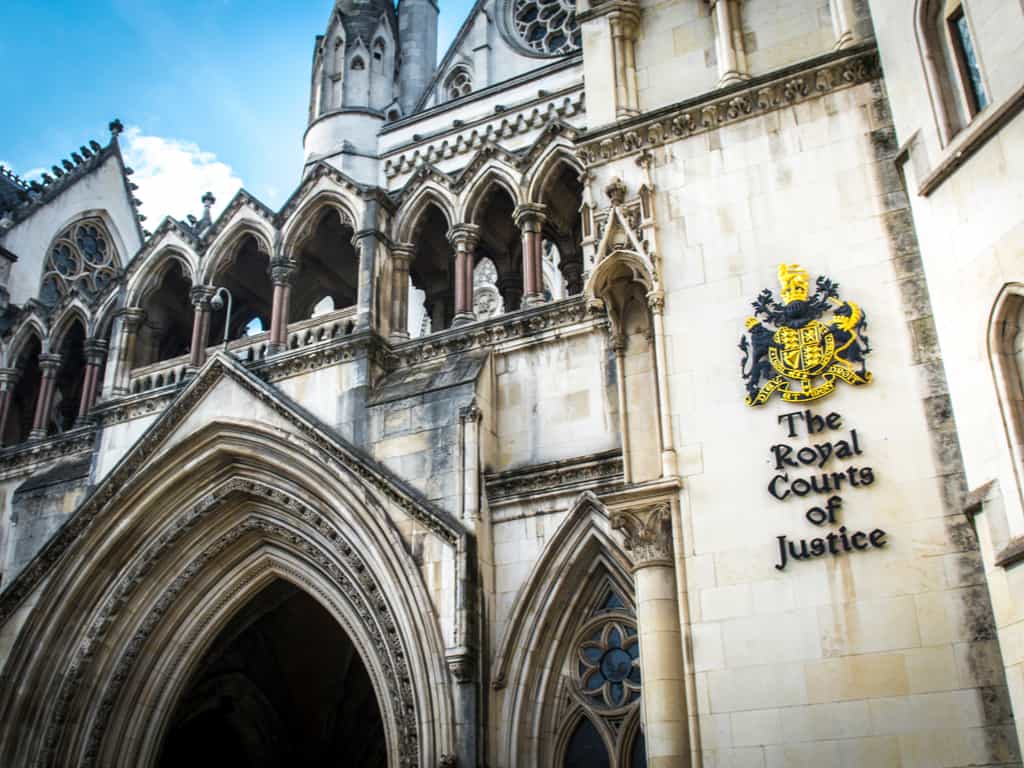Rahman Lowe succeed at the EAT in COVID-19 Health and Safety dismissal claim

On 14 March 2024 the Employment Appeal Tribunal (“EAT”) handed down its judgment in the appeal made by Abraham Ramy Goldstein against the Employment Tribunal’s (“ET”) decision dated 12 November 2022 where our client, Marie Herve succeeded in her claim for automatic unfair dismissal and detriments for health and safety, whistleblowing detriment, and constructive dismissal arising from her concerns about Covid-19. Further details about the claim and the ET’s judgment can be found in our earlier article on this matter, see here.
Even though there are two Respondents in this claim, only Mr Goldstein decided to appeal to the EAT.
Background
Ms Herve worked as a Personal Assistant for the hedge fund tycoon, Mr Goldstein. Her place of work was from Mr Goldstein’s home.
During the Covid-19 pandemic, she worked from home, however on 28 September 2020, Mr Goldstein emailed Ms Herve to inform her that he would like to discuss her returning to the workplace for “some” of her days. In response, on 29 September 2020, Ms Herve notified Mr Goldstein that she had been working from home (attending work on an ad hoc basis) since March without any issues and stressed that she would like to keep it that in view of dangers of the virus and travelling into work.
Following a meeting on 1 October, Ms Herve agreed to attend the workplace once a week.
On 4 November 2020, Ms Herve emailed Mr Goldstein with a link to the government’s guidance which was to come into effect from 5 November 2020 when a new Covid-19 lockdown was due to commence. She made reference to the fact that people were being requested to “stay at home”, “work from home”, not wanting to “break the law” and that the “paramount consideration is to keep each of our households safe, healthy and virus-free”. Her partner was vulnerable in view of his ethnicity.
Mr Goldstein responded on 5 November 2020 making a veiled threat of reducing her pay if an agreement could not be reached with respect to her working from his home.
Ms Herve subsequently resigned on 12 November 2020..
Employment Tribunal
Ms Herve succeeded in her claim for automatic unfair dismissal and detriments for health and safety, whistleblowing detriment, and constructive dismissal arising from her concerns about COVID-19. It was held by the ET that Mr Goldstein could not reasonably believe it was necessary for Ms Herve to attend his home during the November 2020 lockdown and that he was prioritising his own convenience over her more significant concerns [124].
Employment Appeal Tribunal
Mr Goldstein’s appeal sought to suggest that the ET were wrong to find that Ms Herve’s commute to work was “connected with her work”, they suggested that it was merely “incidental”.
The Honourable Mrs Justice Eady (President of the EAT) who presided over the case dismissed Mr Goldstein’s appeal making clear that the ET had been entitled to find that the concerns expressed by Ms Herve in late September and early November 2020 were “connected with” her work for the purposes of section 44(1)(c) Employment Rights Act 1996 (“ERA 1996”), that she was concerned about the health and safety risks both from commuting to and from work at that time and in being physically present in the workplace (which was also the Respondent’s home). The EAT found that the ET were correct to find that Ms Herve’s email of 4 November 2020, where she had refused to return to her workplace once the second lockdown came into force at midnight on 5 November 2020, amounted to a refusal within the ambit of subsection section 44(1)(d) ERA 1996 and an appropriate step for the purposes of subsection 44(1)(e) ERA 1996.
The EAT found that in seeking to challenge the ET’s decision, Mr Goldstein was seeking to go behind its findings of fact, and was wrongly eliding the position adopted by Ms Herve after 5 November 2020 (when she was refusing to return to the workplace) with that she had taken in late September/early October 2020 (when she had agreed to come into work on a limited basis). Moreover, the EAT found that the ET had been entitled to find that Ms Herve had a reasonable belief in the circumstances connected with her work, or at her place of work, as being potentially harmful to health and safety and/or as giving rise to a serious and imminent danger; the ET’s finding of fact in this regard was to be contrasted to the finding made in Rodgers v Leeds Laser Cutting Limited [2022] EWCA Civ 1659 in which the appellant held only a general concern related to Covid that was not specific to dangers at his place of work.
As part of Mr Goldstein’s appeal, it was contended that the ET was wrong to find that he had been unreasonable in his reliance on government guidance and that, as a consequence, he did not have reasonable and proper cause for his actions, such as to give rise to a breach of the implied duty of trust and confidence. Mrs Justice Eady considered this argument to be “misconceived on a number of levels”.
More generally, EAT found that the ET had been entitled to find that Mr Goldstein’s actions breached the implied term of trust and confidence and also gave rise to an automatically unfair dismissal for the purposes of section 100(1)(d) ERA.
The Judgment of the EAT can be found here.
A remedy hearing will now take place at the ET on 23-24 July 2024.
Ms Herve was represented by our Zillur Rahman and Louise Mankau of Doughty Street Chambers.
For further information or to discuss a potential employment law or discrimination claim, please contact our specialist employment solicitors on 0207 956 8699 or info@rllaw.co.uk. We are ranked as a ‘Leading Firm’ in the Legal 500 and Chambers and Partners independent guides to the UK Legal Profession.
– Friday 11 July 2024



